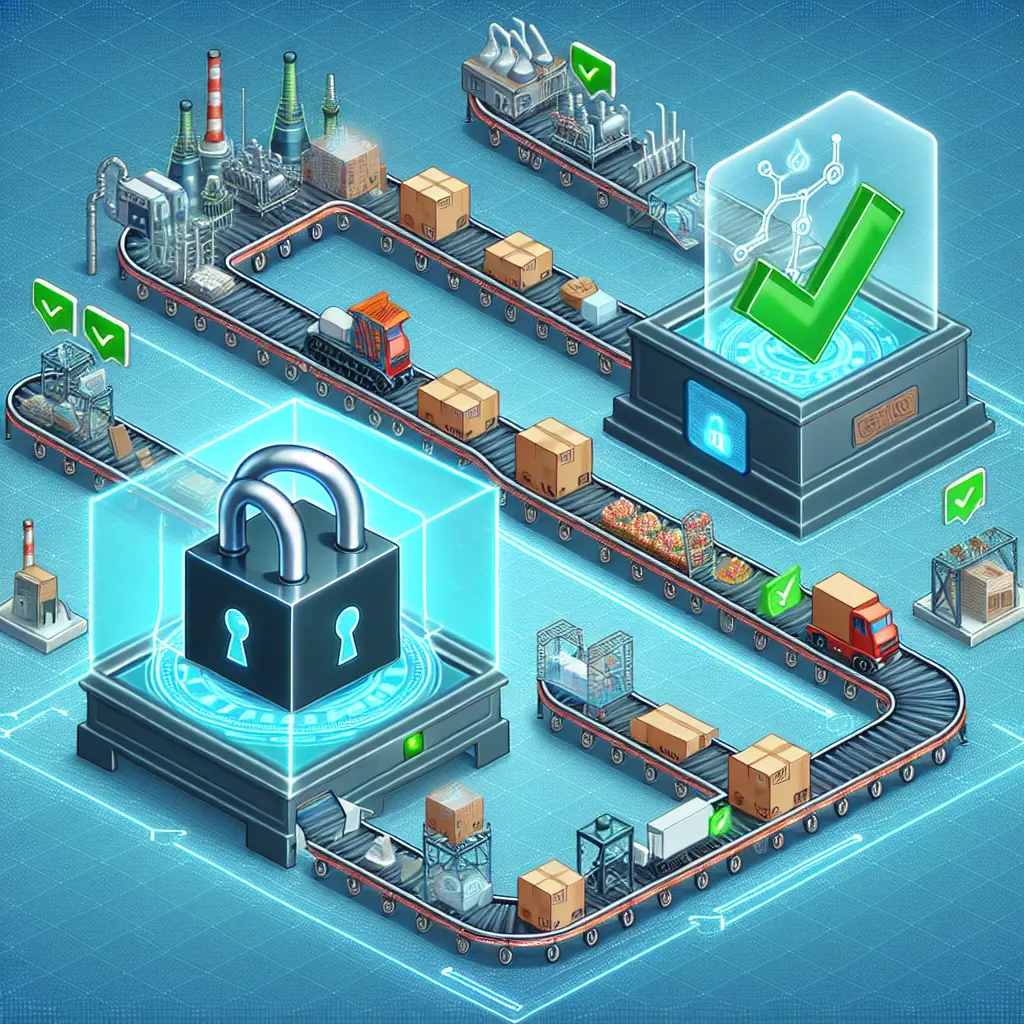
Revolutionizing Supply Chain Risk Management with Blockchain Technology
In today's fast-paced and interconnected global economy, effective supply chain risk management has become a pivotal concern for businesses striving to maintain a competitive edge. Blockchain applications are emerging as transformative tools, offering innovative solutions that enhance supply chain transparency and security. By integrating blockchain technology into supply chains, companies can experience significant improvements in risk management solutions, supply chain optimization, and overall efficiency.
The integration of blockchain technology into supply chains is reshaping the landscape of supply chain risk management. This transformation is driven by the need for increased transparency, efficiency, and security, offering innovative risk management solutions to businesses worldwide.
Real-Time Tracking and Transparency
One of the most significant benefits of blockchain is its ability to provide real-time tracking across the entire supply chain. This level of transparency allows companies to monitor the movement of goods at every stage, minimizing disruptions and enabling early identification of potential risks. For instance, IBM's blockchain-based platform has been instrumental in increasing transparency and efficiency in food supply chains by providing real-time data about product origins and conditions.
Enhancing Supply Chain Security
Supply chain data security is another critical area where blockchain innovation is making a difference. The decentralized nature of blockchain ensures that data cannot be altered without consensus, providing a robust defense against unauthorized access and ensuring the integrity of sensitive information. This is especially pertinent in industries dealing with high-value goods or sensitive data, such as pharmaceuticals. According to a report by Deloitte, the implementation of blockchain technology has reduced fraud in pharmaceutical supply chains by up to 50%.
Smart Contracts and Supply Chain Optimization
The use of smart contracts in supply chains represents another groundbreaking development. Smart contracts automate processes by executing predefined actions when certain conditions are met, reducing human error and enhancing supply chain efficiency. For example, in the automotive industry, companies like Ford have started using blockchain to track the provenance of materials and automate supplier payments through smart contracts, significantly reducing administrative costs (Ford's Blockchain Initiatives).
Blockchain Adoption and Decentralized Supply Chains
As businesses recognize the potential of blockchain integration, there is a marked shift toward adopting decentralized supply chains. This shift promises not only operational efficiency but also increased resilience against disruptions. For instance, De Beers has successfully implemented a blockchain-based system to track diamonds from mine to market, ensuring transparency and ethical sourcing (Tracr by De Beers). This decentralized approach empowers stakeholders with reliable data, facilitating better decision-making.
Case Study: Chimpzee's Environmental Mission
Blockchain applications are not limited to traditional industries; they also extend to innovative projects like Chimpzee, which allows users to earn income while contributing to environmental protection and animal welfare. This project leverages blockchain technology to ensure transparency and accountability in its operations, providing users with clear insights into how their contributions are making a difference (Chimpzee Project). Such applications underscore the versatility of blockchain in addressing diverse challenges beyond conventional supply chain management.
Emerging Technologies: Blockchain, IoT, and AI
The intersection of blockchain with other technologies like IoT and AI is set to further enhance supply chain risk management. A comprehensive eBook titled "Blockchain, IoT, and AI Technologies for Supply Chain Management" explores how these technologies can be integrated to address complex supply chain challenges. This convergence allows for more sophisticated data analytics, predictive maintenance, and automated decision-making processes, paving the way for next-generation supply chain solutions.
Conclusion: Embracing Blockchain for a Secure and Efficient Supply Chain
As we look toward the future, it's clear that blockchain technology holds immense potential for revolutionizing supply chain risk management. By enhancing transparency, security, and efficiency, blockchain is setting new standards in the industry. Key highlights include:
Real-Time Tracking and Transparency: Blockchain provides unparalleled transparency, allowing businesses to track goods in real-time and preemptively identify potential risks.
Enhanced Security: With its decentralized nature, blockchain ensures data integrity and security, reducing fraud and unauthorized access.
Smart Contracts: Automating processes through smart contracts reduces human error and administrative costs, optimizing supply chain operations.
Decentralized Supply Chains: Adopting decentralized models increases resilience against disruptions and ensures ethical sourcing.
Emerging Technologies: The convergence with IoT and AI drives next-generation supply chain solutions.
The question now is not if but how soon you will embrace these advancements to shape your industry's future. Reflect on these insights and consider how blockchain can transform your supply chain. Share your experiences or questions in the comments below as we explore these boundless possibilities together.
Author: Oliver Bennett